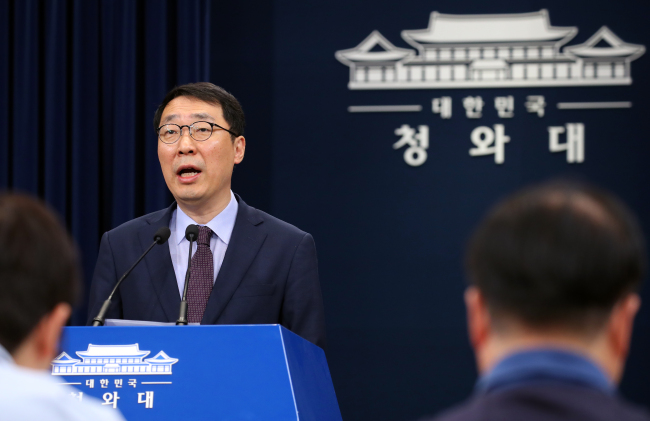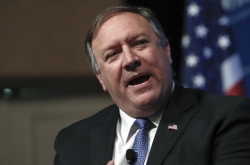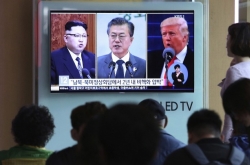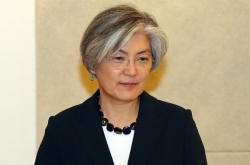North Korea will shut down its nuclear weapons testing facility in May, and allow inspection by South Korean and US experts and media, Cheong Wa Dae revealed Sunday.
“(North Korean leader Kim Jong-un) said during the summit talks with President Moon Jae-in that the shutdown of the facility in the north of the country will be carried out in May,” Cheong Wa Dae senior public relations secretary Yoon Young-chan said.
 |
Senior presidential public relations secretary Yoon Young-chan speaks at a press briefing on Sunday. Yonhap |
“(Kim said that) in order to reveal it transparently to the international community, South Korea and US experts and media will be invited to the North.”
According to Yoon, Kim denied speculations that the decision to shut the facility down was prompted by structural damages, saying that there are two intact tunnels at the site.
After North Korea announced that the facility in Punggye-ri will be shut down, speculations rose that the decision was made due to the testing tunnel being irreparably damaged.
Yoon added that Seoul and Pyongyang will negotiate on when experts and media personnel will be invited to the North once preparations are made.
“Kim’s decision is a statement of the North’s intent to engage in denuclearization proactively and pre-emptively,” Yoon said.
“The US has an inherent repulsion to the North, through talks it will become clear that I am not someone who will fire nuclear (weapons) on the South, or over the Pacific, or target the US,” Kim was quoted as saying by Yoon.
“If trust is built with the US through frequent meetings, and end of war and non-aggression is promised, why would we live difficultly with nuclear weapons,” Yoon quoted Kim.
Yoon added that Kim reiterated that his country will not take military action against the South, and called for effective measures to prevent accidental clashes along the border.
Yoon also revealed that Kim decided to synchronize Pyongyang time with Seoul time as part of the efforts to improve inter-Korean relations. Pyongyang Time was created under Kim in August 2015, set to 30 minutes behind Seoul.
“Synchronizing the time zone, despite the administrative difficulties and costs, is a decision that shows (North Korea’s will) to proactively seek harmony with the international society,” Yoon said.
“The decision (is aimed at) removing obstacles in South-North, North-US exchanges and cooperation expected in the future.”
By Choi He-suk (
cheesuk@heraldcorp.com)

![[2018 Inter-Korean summit] Two Koreas’ commitment to ‘complete denuclearization’ raises hope, concerns](http://res.heraldm.com/phpwas/restmb_idxmake.php?idx=605&simg=/content/image/2018/04/27/20180427001290_0.jpg)









![[Exclusive] Hyundai Mobis eyes closer ties with BYD](http://res.heraldm.com/phpwas/restmb_idxmake.php?idx=644&simg=/content/image/2024/11/25/20241125050044_0.jpg)
![[Herald Interview] 'Trump will use tariffs as first line of defense for American manufacturing'](http://res.heraldm.com/phpwas/restmb_idxmake.php?idx=644&simg=/content/image/2024/11/26/20241126050017_0.jpg)
![[Herald Review] 'Gangnam B-Side' combines social realism with masterful suspense, performance](http://res.heraldm.com/phpwas/restmb_idxmake.php?idx=644&simg=/content/image/2024/11/25/20241125050072_0.jpg)